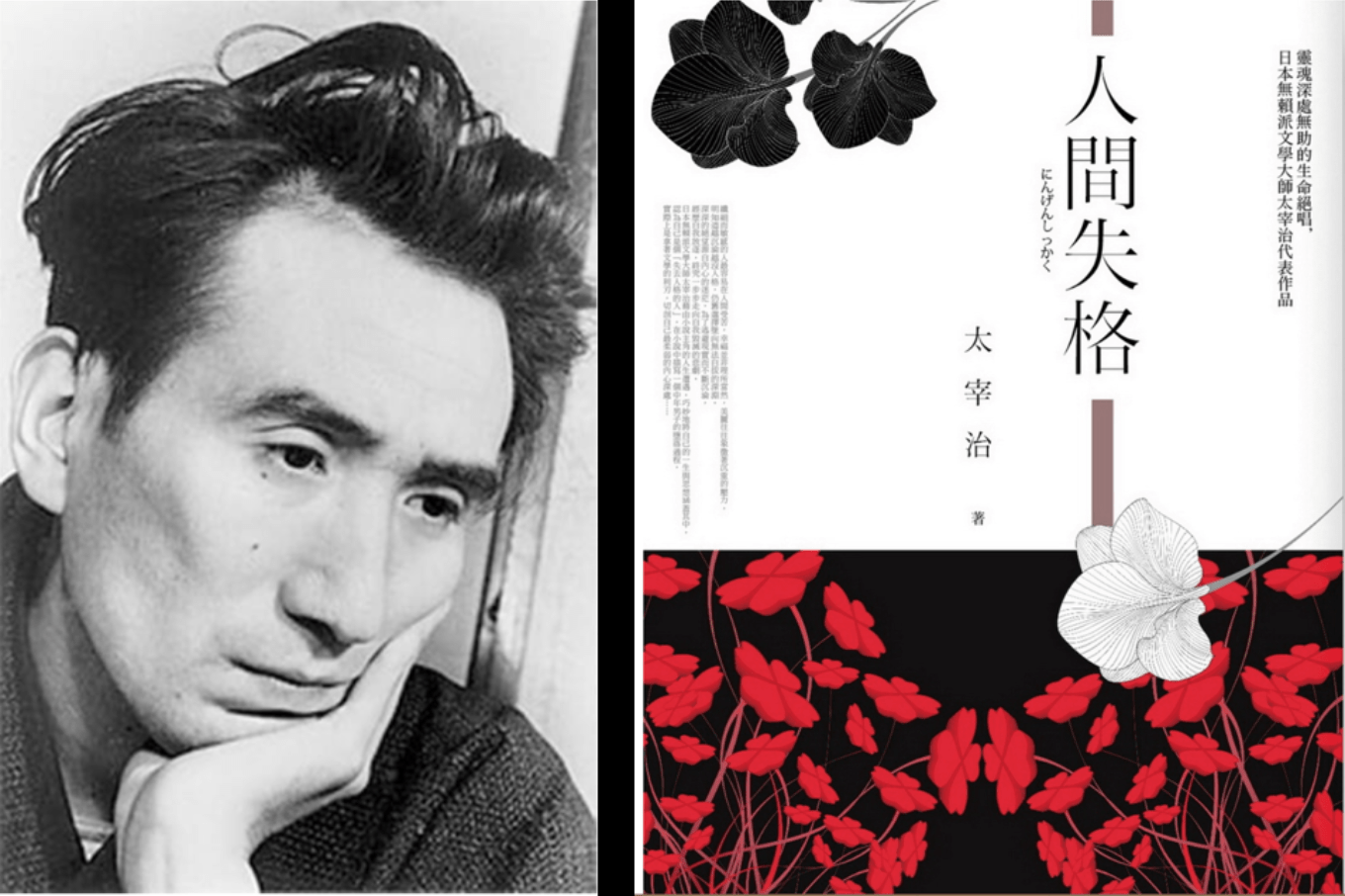Osamu Dazai's book review of "Disqualification in the World": Other people's eyes are their own hell

"The importance of novels is not that they allow readers to see the fate of the characters in an illuminating way, but that the fates of the characters, after burning through the flames, release to the reader something they cannot get from their own destiny. Thermal energy... can warm my life that is shivering from the cold."
This passage comes from Benjamin's article "The Storyteller", although it is about the Russian writer Nikolai. Leskov. But perhaps this commentary on the novel is more suitable for talking about Osamu Dazai's literary works. In particular, the monologue in his "Disqualification in the World" that is almost desperate and gives up survival, after reading it, it can make people more determined to face the unease and loneliness of the future.
Disqualification in the World is the last work of Osamu Dazai before his death. After it was published in 1948, the author died in love with his female fans. This novel is often regarded as Dazai's autobiographical novel. However, it seems that "Disqualification in the World" is more like a confession-style suicide note left by Dazai before his death. In it, he wrote all his doubts about the world and his desperation to live.
Despair and helplessness about being alive are common themes in Dazai's novels. However, why do people feel hopeless about being alive? Mainly because of feeling empty. Although Osamu Dazai, Ango Sakaguchi, etc. are often classified as so-called rogue writers in Japan because the themes of their writing are related to the depravity of human nature. But I think that if you want to enter the fictional world of these writers, maybe you should not focus on the theme of degeneration of human nature, but change to the emptiness and loneliness of living, so that you will feel more intimate to know the works of the rogues.
The protagonist of the novel, Oba Yezang, was born in a wealthy family. He has lived a life that is considered "happiness" since he was a child. However, Ye Zang was not happy. On the contrary, he has always felt that his life was full of humiliation and insecurity.
A life full of abundance can sometimes be overwhelming. I don't know if it was because of the family's upbringing, Ye Zang was afraid of being criticized since he was a child, and he was also afraid of being worried about himself. To avoid such a situation, he became a child who often lied. But such measures are not enough. In order to make himself feel safe at home and in the group, he trained himself to be a clown and let himself play the role of making others laugh, because this can make him less likely to feel the difference between him and others. gap.
Although making others laugh can gain family favor, as well as the charm among peers. But people who always build their inner identity through acting are often the least confident in themselves. Even, in order to make up for the void in his heart, he must be forced to play someone who thinks differently from himself. For example, although he likes to draw and wants to go to art school, he gave up his ambition and entered a more meaningless life because he dared not contradict his father who wanted him to go to high school.
"Other people's eyes are their own hell" This sentence comes from the French existentialist philosopher Sartre. Very much echoes the plot in "Disqualification in the World". As Dazai Osamu wrote in it: "Am I happy in the end? Many people have said that I am very happy since I was a child, but I always feel that I live in hell. On the contrary, those who think that I am very happy seem to have no pain and live a life of very comfortable."
Happiness may allow people to live freely and pursue the life they yearn for. But the image of "happiness", in a way, prevents one from being oneself. Because the image is a heavy burden formed through vision and imagination, once people are unable to respond to the requirements of the picture, it will lead to a lack of identity. In addition, Ye Zang is very afraid of trusting others, so he often falls into a life where life is worse than death.
At the beginning of Notes 1, he wrote: "For me, human life is difficult to understand." Why? Mainly, he found that people are often not the same. And society and life are not as simple as he (a child) imagined, just like people's words often cannot represent their hearts, but only a certain surface. Although the servants in the family felt that his father's opening speech in the lecture was not very good, they criticized him privately and angrily. But in front of my father, I can praise his speech with a cheerful face and praise it as a very interesting speech; people often use the word "world" to say some truth, but in fact "world" is just to hide the opinions from their own speak words.
"Deceiving each other and miraculously getting no harm, as if unaware that they were cheating. Examples of this clear, conscientious and open-minded distrust of each other abound in human life." What Osamu Dazai wants to ask here is: Why can't people always be themselves calmly?
The tragedy of Ye Zang lies in the fact that he realized from a very young age that society and people's hearts have a stale and hypocritical side. And this situation, even if he is very funny, can't be changed. When he became an adult, when he needed help and turned to friends for help, he realized that the friends who often went out to play with him didn't take him seriously at all, but just wanted to take the opportunity to use his money to invite him to spend time and money. But even if his friend saw through him, he didn't have the courage to scold him, because Ye Zang was very frustrated that even if he exposed his friend's true face, his friend would probably only express his contempt for him without any guilt (you are too wasteful, I It's just good to use you).
The saddest part of "Disqualification in the World" is that Osamu Dazai never directly describes or describes the despair of the protagonist. He just kept describing Ye Zang's innocent and innocent doubts and his behavior of denying his own ideas, trying to please people and avoiding people, and finally his thoughts on people's behavior (usually very negative), and admitting that others Negative evaluation of himself (as in the previous paragraph, he is reluctant to express his sadness and anger to his friends). This kind of feeling is like watching a person who is holding a knife in front of you and constantly self-harming himself, bleeding all over the floor, but he keeps laughing, talking about all kinds of unbelievable crimes that he can't even call a prank. Then he said, "It's nothing...it's nothing...it's nothing...it's just...(laughs)", and every now and then there were tears that were not easy to see.
We can think that this person is really a neurotic. Like so many people think about the main character in "Disqualification" and then ditch the novel for a more rewarding book. But you can also think in another direction, how miserably tortured by one's own despair is a person who would have such a behavior? From this, you will be able to better understand the state of "disqualification in the world"~
"Humanity has always made me tremble with fear. As a human being, I have no confidence in my words and deeds, and can only hide my annoyance and uneasiness in the secret locket in my chest. In this way, my spiritual melancholy and uneasiness can be stored away. Hidden, pretending to be an innocent optimist, and eventually turning myself into a total freak...I'll do anything to make people laugh..."
I don't want to say big truths, but the way of writing my thoughts in a straightforward and blatant way. I think that is one of the reasons why Dazai Osamu's novels are so moving. Although the structure of "Disqualification in the World" is not meticulous, the narrative of thinking is often half-talked, and it is passed with a frivolous joke, which sometimes makes people feel like they are reading a raving article, but this style is exactly what It is a spiritual portrayal of self-defeating, and can make people feel the pain that is deliberately hidden and directly expressed without face.
Perhaps behind every cowardly and self-defeating person, there once had a wish to live a serious life. I just wish I could support it in the same way, or at least not add to the harm.

Like my work? Don't forget to support and clap, let me know that you are with me on the road of creation. Keep this enthusiasm together!

- Author
- More